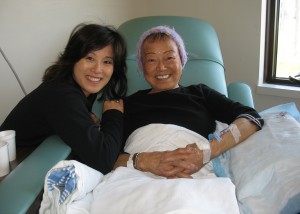Meet Gen-Yers on their turf
June 12, 2011
Q: I’ve been a CEO for a long time and frankly this generation has me stumped. Our new hires are 20-somethings. I hate to stereotype but they seem arrogant and self absorbed. During an interview one candidate even checked a text message on his phone! How do I manage and motivate them?
A: Generation Y are whiz kids raised on instant gratification where a click of a button gave them access to everything. They have short attention spans, which makes them excellent multi-taskers.
If you want to reach them, meet them on their turf. They respond better to an instant message or text than a phone or face-to-face meeting. Be brief. They speak in shorthand, processing information quickly. What you may be interpreting as disrespect is their chomping at the bit to take action.
They work best in an open, energetic atmosphere. They love to participate, not wanting to miss out on anything. They thrive in an entrepreneurial environment where they are empowered and rewarded for their individualism.
Salary is less important than meaningful work where they’re recognized for the difference they make. They are motivated by a management style that mentors and develops them professionally. Inspiring leadership can unleash tremendous productivity. When they’re engaged, they willingly work after hours as long as they can check their Facebook status at work.
Sharp, highly creative and ambitious, they crave variety and challenge. If they aren’t given the chance to advance they’ll be out the door. They know they don’t have to go far to replace an aging boomer. With 1,000 retiring each day in Canada, you’ll need to continue meeting the key retention question: “What’s in it for me?”
Originally printed in The Province, June 12, 2011
Coaching cancer
June 10, 2011
In my 11 years of Co-Active coaching, the toughest coaching client I’ve ever had has been my mom. She had never dared to believe she had any right to ask for what she wanted. Even her own life. So the concept of living a fulfilling life was not merely a “radical act,” but a foreign concept to her.
Mom’s wake-up call came in the guise of lymphoma at age 75. Even though the incurable blood cancer had first gnawed 10 pounds off her delicate 99-pound frame before she was diagnosed, she insisted she was fine: “I don’t need to go to any doctor!” she’d snap with a swat of her hand at us. Ignoring the unwanted had always worked in the past to make it go away. Why not now?
She was finally so weak that she went to the doctor. We learned it was cancer, and it was advancing relentlessly. In spite of three rounds of chemotherapy, a spleen removal (it can block blood production) and regular blood transfusions in the following 18 months, Mom struggled to control the chaos the only way she knew how – by continuing to live exactly as she always had. She kept smoking in secret, but insisted she wasn’t, and refused to exercise every day, but insisted she was.
Mom’s always been a rebel. How else do you distinguish yourself from eight siblings in a traditional Chinese family where boys are born valuable and girls are only there to serve and sacrifice? Revealing her true feelings was an indiscretion worthy of a beating. No wonder she couldn’t receive the outpouring of assistance, love and support from family and friends. Needing help would reveal a humiliating weakness of character.
We have been partners on this journey for almost three years now. Working as a professional Co-Active coach has permitted me the flexibility to be at every lab test, check-up, oncology appointment and chemotherapy treatment. The first two years, I tried to shift her perspective from ‘the cancer is omnipotent’ to ‘I am capable of beating it’ but she clung to her saboteurs for dear life. I tried future visioning to create a possible dream to reach for post-chemo. But giving selflessly was so ingrained in her that all I got back was, “What are you talking about? What on earth is fulfillment?”
Then, last August, her blood levels and immunity plummeted to an all-time dangerous low, she was stricken with a second more aggressive cancer and Dad, her life partner of 53 years, died – all in the same week. She called it a cruel slap in the face and crumbled into helpless tears. The only other time I witnessed Mom cry was when her father was killed in a traffic accident.
The crushing blow jolted her out of her denial. Mom began wondering aloud how she could transform this disease and take back her life. My powerful question that shifted her thinking was, “What would make life worth fighting for?” She whispered, so as not to jinx it: “To travel a bit of the world with my sisters and be at each of my four grandchildren’s weddings.” These dreams transformed her relationship with her disease. Instead of being a victim to it, she began visualizing her body full of goodness powerfully shooting the invading cancer cells.
You know how the most powerful part of coaching happens between the sessions? As coaches, we can’t underestimate our impact. During this final round of chemo she sighed, “I guess it’s time I start loving myself.” Wow! That’s HUGE! Since then, she has been paying attention to her body’s subtle cues, being compassionate with herself, even graciously receiving help. The Future Self/Captain archetype I anointed her is “Queen”. She surrenders in giggles when I ask, “Now, Mom, what would a Queen do?”
The journey has also transformed our relationship from one of a mother shielding and protecting her daughter’s innocence to two adult women relating authentically as friends, mentors and equals. It took months of redesign for Mom to recognize that maintaining a stoic facade was pointlessly taxing and lonely. All my life I’ve been craving to know my mom deeply. That was cancer’s expensive consolation gift.
During our daily phone calls, I consciously create a safe and courageous space for her to explore her darkest emotions. When I ask how she’s feeling now, “fine” has been replaced by checking in with herself and articulating anything from “I think I may be on borrowed time,” or “This has been going on so long, I’m so discouraged,” to “You know, I’m pretty lucky.” The witnessing is helping her become comfortable with this disconnected part of herself. She told me last week that talking about it is helping her to let it go.
Mom’s sixth and final chemo treatment is this week. She’s weak from the toxic cocktails, fatigued by disturbed sleep cycles, and experiencing new side effects. She knows her belief in herself has the greatest influence on her healing, but those old self-berating habits are seductive and it’s taking all of her will to hold onto her optimism. She is conscious of keeping the healing energy flowing through her by focusing on the good in situations rather than worry about the worst-case scenario.
I’m writing this in O’Hare airport waiting for the flight home after leading the Process course. Tears are streaming down my face as I reflect on the perfection of being this weekend’s practice client. Skillful coaches allowed me to voice my own fear of losing Mom. They gave me the judgment-free space to express my anger at God, frustration with her situation and guilt about not being able to make it all better. This clearing enabled me to move through my own emotions to acceptance so I can be present for hers. What is…is. It IS enough to simply love her as she is. She may well be the very reason I was called to this work.
Originally posted in the Coaches Training Institute’s blog: Transforum, June, 2011





